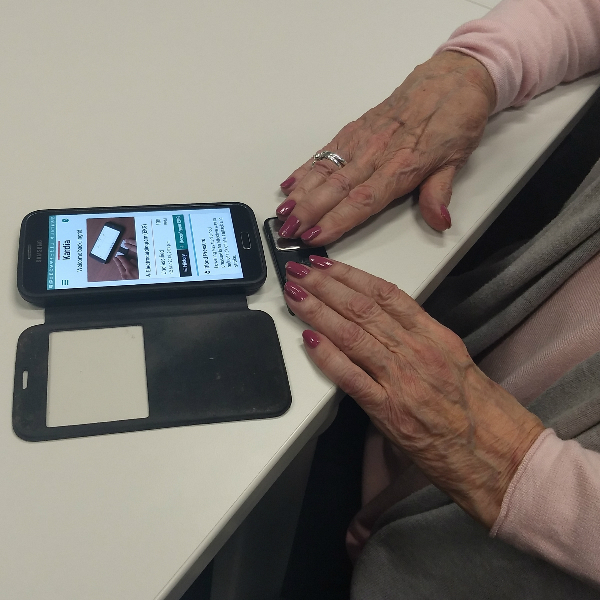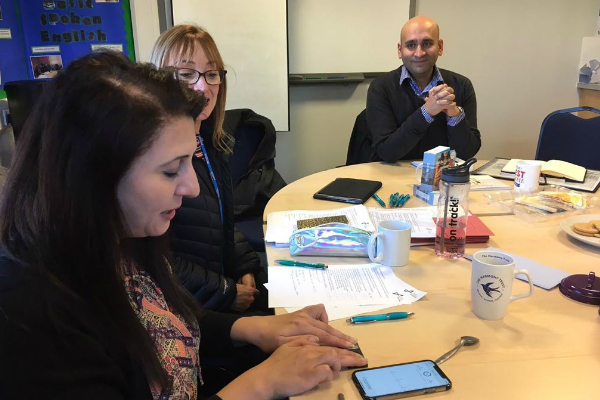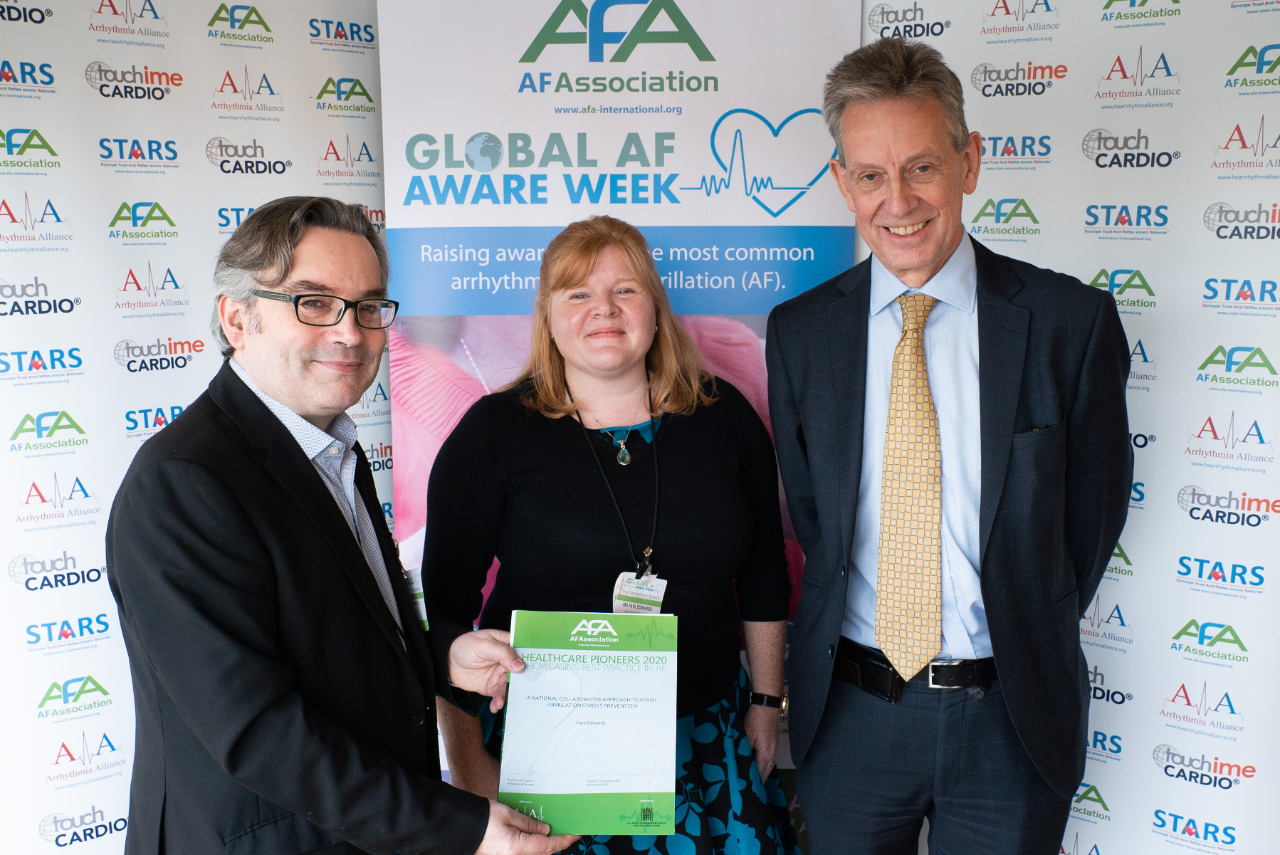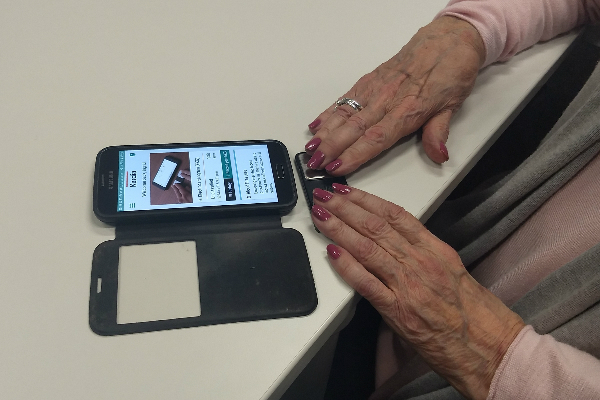This website uses cookies so that we can provide you with the best user experience possible. Cookie information is stored in your browser and performs functions such as recognising you when you return to our website and helping our team to understand which sections of the website you find most interesting and useful.
12 Feb 2020
Over 3,000 strokes prevented and 800 lives saved through national drive to detect and treat Atrial Fibrillation

Recently released figures reveal that a programme rolled out across the NHS to reduce strokes related to an irregular heart rhythm prevented 3,165 strokes and 791 lives last year (2018/19).
The NHS initiative focussed on improving the detection and treatment of Atrial Fibrillation (AF) – the most common type of irregular heart rhythm that can increase risk of stroke.
In the UK, one million people are known to be affected by AF and an additional 422,600 people are undiagnosed. This irregular heart rhythm is responsible for approximately 20% of all strokes, which can leave survivors with disabling consequences. Treating the condition costs the NHS over £2.2 billion each year.
Making sure people with AF are given optimal treatment – usually blood-thinning medication to prevent clots (anticoagulants) – can more than halve their risk of having a stroke.
Academic Health Science Networks (AHSNs) have played a key role in this nationwide initiative. Pulse checks for over 65’s, mobile ECG devices for GP surgeries and pharmacies, and new ‘virtual clinics’ involving specialists working with GPs to advise on the best treatment for people with the condition, were amongst the varied activities undertaken as part of this life saving work.
As a result, last year over 61,000 people were diagnosed with AF for the first time and almost 80,000, including some who were previously diagnosed, were given appropriate medication.
Health Innovation Manchester, the AHSN for Greater Manchester and East Cheshire, has been supporting the national AF detect, protect and perfect initiative.
During 2018/19 3,770 new cases of Atrial Fibrillation were identified and recorded within Greater Manchester and East Cheshire, bringing the total number of people registered as living with AF in the region to 59,860. 86.5% of eligible patients are now also receiving optimal treatment.
Find out more about our Atrial Fibrillation Work
Amanda Risino, Managing Director of Health Innovation Manchester, said: “Early detection and treatment for those living with AF can be lifesaving. Health Innovation Manchester are committed to improving detection of those living with AF through the distribution of innovative devices and supporting our primary care partners to ensure all patients receive the correct care and treatment.
“We’re delighted to see that more people with AF are being found and are receiving treatment sooner, hopefully preventing strokes and saving lives. This programme of work was carried out in collaboration with NHS RightCare and localities to ensure maximum uptake.”
“Health Innovation Manchester is committed to championing new innovations and pathways in order to make a huge difference to the health and wellbeing of people in Greater Manchester.”
Professor Gary Ford, Chief Executive of Oxford Academic Health Science Network and Consultant Stroke Physician, said: “Spotting the risk of stroke early and taking preventative measures can help to reduce risk of premature death and reduce the number of people who experience life-changing, long-term disability due to stroke. Identifying people who have AF and ensuring they are provided with the most appropriate anticoagulant (blood thinning) therapy can more than halve their risk of having a stroke.
“Since 2016 AHSNs have worked tirelessly with others across the healthcare system to reduce the burden of stroke. This recently released data illustrates the significant impact our work has made, improving lives and reducing cost to the NHS”







